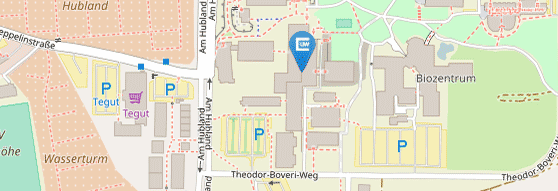Classifying Proteins Delivers New Target to Combat Tropical Diseases
05/27/2025Researchers are zeroing in on the Achilles’ heel of pathogens that cause Chagas disease, African sleeping sickness, and leishmaniasis.
The efforts of a research team from the University of Würzburg and Ruhr University Bochum offer hope for new treatment approaches for these dangerous tropical diseases.
Using mass spectrometry-based proteomics, the team classified thousands of proteins and compiled a high-confidence catalog of the membrane proteins present in distinct cell organelles of Trypanosoma brucei, the parasite responsible for African sleeping sickness. Some of these proteins are specific and essential to the parasite, differing significantly from those in the host cells. As a result, they represent promising targets for potential active substances designed to specifically target this disease.
The researchers’ findings will be published in the Cell Reports journal on May 27, 2025.
Unique Organelles in Parasites
The research team studied the parasite Trypanosoma brucei, which possesses unique cell organelles known as glycosomes. These organelles are vital for the parasite’s survival and are therefore considered a potential Achilles' heel in the search for new drugs.
The team of Professor Bettina Warscheid and her colleagues Hirak Das and Dr. Silke Oeljeklaus from the Biocenter and Faculty of Chemistry and Pharmacy at the University of Würzburg, in collaboration with Professor Ralf Erdmann, Dr. Vishal Kalel and Dr. Chetan Krishna from the Ruhr University Bochum has succeeded in compiling a high-precision inventory of the membrane proteins of these glycosomes. For the first time, they identified in detail the protein components of the glycosomal membrane, including numerous previously unknown components, some of which are specific to the parasite.
Promising Target for New Active Substances
Using state-of-the-art subcellular proteomics, the team identified 28 glycosomal membrane proteins with high reliability. “This technique enabled us to detect proteins associated with glycosome biogenesis, interorganelle communication, and protein quality control,” explains Professor Bettina Warscheid. “A particular highlight has been the discovery of TbPEX15, a membrane anchor for an essential glycosomal protein import complex – a promising target for the development of new drugs, as it differs significantly from its counterpart in humans.”
These groundbreaking findings provide an essential foundation for the development of new therapies for diseases that affect more than 12 million people worldwide, including Chagas disease and leishmaniasis. Moreover, this research deepens the understanding of parasite biology, opening new avenues for targeted treatments for poorly understood tropical diseases. It also offers a valuable resource for biomedical research focused on glycosome biology.
About the Researchers
Bettina Warscheid is the Chair of Biochemistry II at the Faculty of Chemistry and Pharmacy. She and her team are part of Theodor-Boveri-Institute and the Biocenter of the University of Würzburg. Dr. Vishal Kalel and Dr. Chetan Krishna are part of the research group led by Professor Ralf Erdmann at Ruhr University Bochum. Together, their work advances both the understanding and potential treatment of tropical diseases caused by parasites.
For further information, please contact:
Prof. Dr. Bettina Warscheid
Julius-Maximilians-Universität Würzburg
Lehrstuhl für Biochemie II
Theodor-Boveri-Institut, Biozentrum
bettina.warscheid@uni-wuerzburg.de





